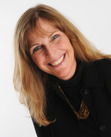Connie Johnson Hambley's Blog, page 5
June 6, 2020
The Writer's Community - Video Interview
Writers are always wondering how to reach readers. Take a look at this brief interview to learn how writing and author organizations can help you connect with readers, too!
Published on June 06, 2020 10:26
June 3, 2020
Writing Prompt
One prompt. Four authors. We all gelled around one word. Venice. And on the wings of one word, four worlds took flight in the five minutes we gave ourselves to create.
+++++++++++++++++
From Maggie:[Winner of the Mom's Choice Award of Excellence for her children's book.]
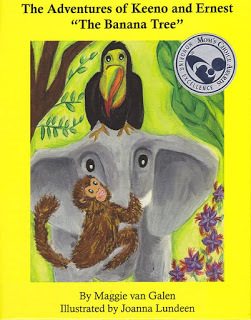 I was walking down a street in Venice taking in the ambiance when...
I was walking down a street in Venice taking in the ambiance when...
... a fish jumped right out of the water!
"I haven't seen fish in the canals for over 30 years," Victor said to his grandson.
The fish smiled, dove back in, swam in a circle just below the surface and then said, "Every dark cloud brings a spring rain of freshness."
And then he was gone.
"What does that mean," asked the child through his mask?
The grandfather led the child to a nearby bench and pulled him in close.
"The fish is telling us to always look for the silver lining...even in the darkest of times."
+++++++++++++++++++++
From Cyd:
I was walking down a street in Venice taking in the ambiance when...
I smelled incense. So late in the evening the streets were quiet enough for me to enjoy the canal, watching flecks of lights dancing on the ripples and hear a gentle lap, lap lap splash the stone wall.
I followed the aroma around a corner and came upon a queue of people filing out of a doorway and following a man who carried high an antique lantern. I intended to drop back, wondering about the purpose of the procession when from the doorway I hear a man speak to me in Italian, "After you, I apologize," gesturing for me to follow the line ahead of him.
For some reason, I did.
+++++++++++++++
From Donna:[First Place winner for the Indie Book Awards 2020, Best Children’s Picture Book, illustrated, for children 6 and up.]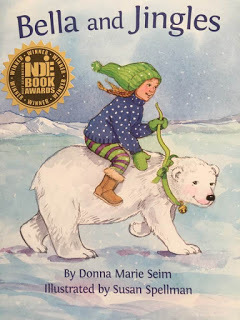
I was walking down a street in Venice taking in the ambiance when...
... I suddenly realized I was lost—hopelessly lost.
How many bridges had I crossed, two, three, four? I tried not to panic, I picked up my cell phone to hit the tour director’s number. Dead, no service. I checked my watch, what time was it? We were all supposed to meet at St. Mark’s Cathedral at noon for a tour. I watched groups of tourist’s pass me by, laughing and calling out to each other.
I felt trapped like a mouse in a maze.Then I spotted a pigeon flying over my head. I followed his direction, but I couldn’t keep up. I had hoped he would lead me to the famous St. Mark’s Square... And then I saw more pigeons coming in waves...
+++++++++++++++
From Connie:[Two time winner of EQUUS Film Festival Best English Fiction.]
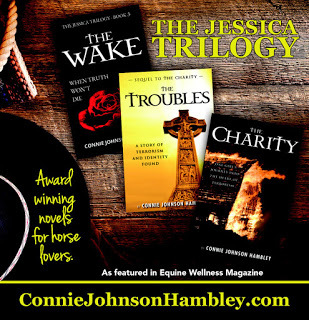
I was walking down a street in Venice taking in the ambiance when...
I turned the corner toward the canal. the streets were empty. Buildings sighed their loneliness. the virus had taken the people from its streets, but not Venice's soul.
I felt heavy. My feet did not to touch the ground, but hovered somewhere above the cobbled street.
A gondolier floated by, pushing on his long pole, his face in a mask of sadness.Behind him, a dolphin arced from the water.
In death and illness, a healing had begun.
"You're here," said the dolphin.
"I'm everywhere now," I replied.
"Was it hard?" The soft grey eyes implored me into its truth.
Time had changed. I had changed. I had died and now was here, in this beautiful and timeless city, wondering at its healing energy.
"No. It was not hard. I lived. I died from the virus, but it somehow healed me."
The dolphin turned. Others waited. "It healed us as well."
+++++++++++++++++
From Maggie:[Winner of the Mom's Choice Award of Excellence for her children's book.]
 I was walking down a street in Venice taking in the ambiance when...
I was walking down a street in Venice taking in the ambiance when...... a fish jumped right out of the water!
"I haven't seen fish in the canals for over 30 years," Victor said to his grandson.
The fish smiled, dove back in, swam in a circle just below the surface and then said, "Every dark cloud brings a spring rain of freshness."
And then he was gone.
"What does that mean," asked the child through his mask?
The grandfather led the child to a nearby bench and pulled him in close.
"The fish is telling us to always look for the silver lining...even in the darkest of times."
+++++++++++++++++++++
From Cyd:
I was walking down a street in Venice taking in the ambiance when...
I smelled incense. So late in the evening the streets were quiet enough for me to enjoy the canal, watching flecks of lights dancing on the ripples and hear a gentle lap, lap lap splash the stone wall.
I followed the aroma around a corner and came upon a queue of people filing out of a doorway and following a man who carried high an antique lantern. I intended to drop back, wondering about the purpose of the procession when from the doorway I hear a man speak to me in Italian, "After you, I apologize," gesturing for me to follow the line ahead of him.
For some reason, I did.
+++++++++++++++
From Donna:[First Place winner for the Indie Book Awards 2020, Best Children’s Picture Book, illustrated, for children 6 and up.]

I was walking down a street in Venice taking in the ambiance when...
... I suddenly realized I was lost—hopelessly lost.
How many bridges had I crossed, two, three, four? I tried not to panic, I picked up my cell phone to hit the tour director’s number. Dead, no service. I checked my watch, what time was it? We were all supposed to meet at St. Mark’s Cathedral at noon for a tour. I watched groups of tourist’s pass me by, laughing and calling out to each other.
I felt trapped like a mouse in a maze.Then I spotted a pigeon flying over my head. I followed his direction, but I couldn’t keep up. I had hoped he would lead me to the famous St. Mark’s Square... And then I saw more pigeons coming in waves...
+++++++++++++++
From Connie:[Two time winner of EQUUS Film Festival Best English Fiction.]

I was walking down a street in Venice taking in the ambiance when...
I turned the corner toward the canal. the streets were empty. Buildings sighed their loneliness. the virus had taken the people from its streets, but not Venice's soul.
I felt heavy. My feet did not to touch the ground, but hovered somewhere above the cobbled street.
A gondolier floated by, pushing on his long pole, his face in a mask of sadness.Behind him, a dolphin arced from the water.
In death and illness, a healing had begun.
"You're here," said the dolphin.
"I'm everywhere now," I replied.
"Was it hard?" The soft grey eyes implored me into its truth.
Time had changed. I had changed. I had died and now was here, in this beautiful and timeless city, wondering at its healing energy.
"No. It was not hard. I lived. I died from the virus, but it somehow healed me."
The dolphin turned. Others waited. "It healed us as well."
Published on June 03, 2020 10:48
April 22, 2020
The Battles of Isolation
 My daughter and I had a battle. She barely spoke to me for three weeks afterward.
My daughter and I had a battle. She barely spoke to me for three weeks afterward.Like many other Boston-area college students, she came home for Spring Break and never left. Lockdown happened. At first, her biggest crisis was having only packed clothes for a week, not the month-long stretch we though we were in for.
The discussion started with reviewing ways to see friends and family and still stay safe. She and her girl friends had met in a parking lot, staying in their cars or sitting on top of them. I was happy to know gloves and masks were worn and hear other ways they had practiced social distancing. Like for many of us, the first weeks were almost fun. We hadn't gotten bored yet. Social distancing challenges were still novel and creative. Longing hadn't set in.
My husband and I are extremely careful and follow all the protocols. We hadn't counted on our daughter being a potential weak point in our defensive wall against the virus.
Then tension filled our discussion. She said her boyfriend was going to visit, and she assured us they would follow every safe distancing guideline.
As much as I love and trust my daughter and her boyfriend, my maternal instincts were hard-pressed to accept he would drive five-plus hours to sit in a chair on our front lawn for a two-hour visit and then drive home. Somehow, I couldn't see how that was better than hours on Facetime or Zoom. He lives with his parents and two younger brothers. Seeing him meant expanding our defensive wall to include five points of contact. I said no because we needed to put our "want to" list aside and do only the actions on our "have to" list. There were too many unknowns. We needed to give the scientific world, and us, time to catch up on all the virus had changed.
The battle continued. She assured me everyone in his home was extra cautious, following each and every precaution. We were over reacting and being ridiculous. I didn't doubt the precautions the boyfriend and his family were following, I just didn't want the risk of that one momentary lapse. What about touching his face after filling the car with gas? What about stopping at a rest stop? My concerns were for him as much as her.
My reasoning failed to resonate with her. Finally, I said that if she was truly hell-bent on seeing him, then she could go to him, but plan on staying there for the foreseeable future. She is an adult. We could not stop her, but we would not take the risk to have her return to us. Was it worth the risk of a two-week quarantine in our garage?
Then I got the semi-silent treatment for three weeks.
This morning, she looked at me in that way that said she had something to say. My stomach dropped. I thought she was going to tell me she was taking me up on my solution, that she was packing and leaving.
Instead, she told me everyone in her boyfriend's home tested positive for COVID-19. His mother is sick, but managing at home. His brothers and father are not showing symptoms. Yet.
I hugged my daughter and she hugged me back. We sat around the kitchen, laughing at the antics of her kitten and planning the night's meal. I didn't say, "I told you so," as I think she may have expected I had a right to.
Despite their best efforts, five members of one family tested positive and are now officially quarantined. Her boyfriend was shocked. He still feels fine.
I do feel better knowing that I wasn't being over reactive. I watch the news, I question the right approach.
For this battle, the combination of maternal instinct and science won. I wonder what it will take to win the war.
Published on April 22, 2020 10:53
April 18, 2020
SISTERS IN CRIME NEW ENGLAND AT NEWBURYPORT LITERARY FESTIVAL
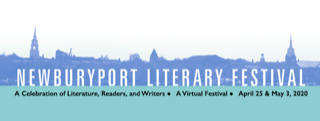

April 25, 2020, 3:00 pm via ZOOMPre-Register hereMystery Making with Sisters in Crime New EnglandNewburyport Literary Festival, Newburyport, MAGive a panel of talented authors names, setting, motives, weapon and more, then sit back and enjoy the fun as they create a brand new murder mystery on the spot! Join authors Joanna Schaffhausen, Bruce Robert Coffin, Carolyn Wilkins and Connie Johnson Hambley as they build a story while pulling back the curtain on the writing process! Special Note: This will be the first time our popular Mystery Making panel will be presented via video, no doubt adding to the fun for all!
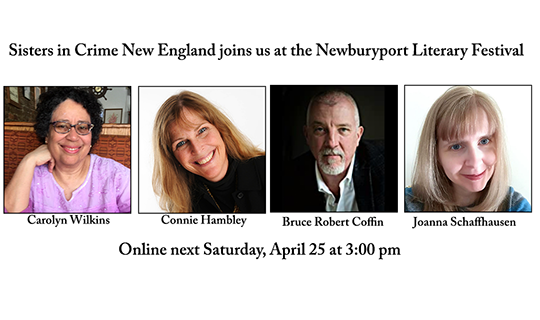
Published on April 18, 2020 10:36
April 9, 2020
Navigating Life in the World of The Other
I have at times been The Other and other times been The Tribe.
My past careers have been in law, investments, and banking. I have been that “pretty blonde” in a sea of suits before the dawn being seen as a novelty was wrong. Even as early as high school, I felt the sting of exclusion because I strove for something outside of a lane some believed my gender defined. The fight to be considered equal and worthy continues, but it’s different now.
Our public discourse is acquiring language for The Other to engage with The Tribe. In tandem with this growth, our society is developing a platform to discuss exclusion. Sometimes that discussion happens in the safe space among friends and like-minded people, other times it happens in the Wild West of public forums. By definition, inclusion means stepping outside of our comfort zone to see more, hear more, and experience more. The conversations can be heated, but are an essential part of a society’s growth. We must have these conversations and controversies to educate one another and ourselves, and to find the stepping stones upon which we can move forward.
At times, I still feel the cold shoulder of being The Other. I also must acknowledge that I am The Tribe.
I am the chapter president of an organization founded on the concept of merit and ability over habit and ignorance. Thirty years ago, Sisters in Crime was founded by women crime and mystery authors to garner the fair share of reviewers and publishers’ attention in a field dominated by men. Hallmarks of exclusion were noted and the mission statement was recently amended to articulate a vision that further erased the lines of gender and color. A code of conduct was added for its members.
In discussions about chapter membership, I realized I was The Tribe. I was on the inside. Conversations included words like “inclusion,” “diversity,” “outreach,” “ageism,” and “gender identity.”
Our chapter co-sponsors an annual regional writers’ conference. I was heartened when a suggestion to include a choice of pronoun ribbons upon registration was enthusiastically supported by other committee members. Attendees could self-identify. They could choose to be addressed in forms of “he,” “she,” or “they.” This was part of our organizations’ efforts to create an environment of inclusion, acceptance, and safety.
Some people were baffled by the ribbons but donned them anyway. Others shrugged and didn’t wear them, but engaged in conversations with those who did. Igniting conversations was exactly the point. I welcomed the chance to talk about and learn from the experiences of others. Conversations included examples of being the only one of color in a room, of being the only white when traveling, of being the only one celebrating, or not, a religious holiday. The list goes on. The Other.
It is gratifying that more circumstances of exclusion are being identified and discussed. The many facets of exclusion, tribalism, and “other-ism” are being recognized as pervasive, insidious, and destructive. Exclusion is one form of harassment and ignorance another. Neither gets a pass when the goal is to include and respect an individual.
One attendee wrote this: “I am exploring my gender identity . . . I was very happy when I came to [the conference] this year and saw the pronoun badges. Thank you! With some trepidation I wore the ‘they/them’ badge -- my first small step to some public expression, but in a place where I felt safe.” Isn’t that what we all want? To feel safe among a crowd of strangers?
In one of the moments that marks growth as well as pain, two incidents required public statements be made by the conference committee to condemn harassment. With our acquired language and awareness, we were able to identify, understand, and condemn the equating of sexual orientation with criminality, and be at the forefront of the discussion of this issue. Sadly, the other incident only served to highlight that attitudinal change is difficult and slow. A presentation allowed certain statements to go unaddressed. Some said the comments were sexist, other claimed them to be misogynistic, others heard nothing wrong, others shrugged that such comments have always been made, so what’s the big deal?
I’ve struggled with how to conclude this opinion piece. I write this as me, and not in any official capacity. I can only observe that harsh public discourse is an inevitable symptom of growth, as is an individual’s discomfort for being called out on behavior once considered acceptable. Private statements can also be caustic, but more often than not, those who may be reticent to express support publicly are relieved to do so privately.
We are learning whether our education comes informally in private or public conversations or formally in workshops and educational forums with a curriculum designed to help us hear and see our way to inclusion.
A reality none of us can evade is that at one time or another, you, too, will be The Other.
Published on April 09, 2020 21:00
April 2, 2020
BRINGING IT ALL HOME
I went grocery shopping today.
Big deal, right? Yeah. It was a much bigger deal than I expected it to be.
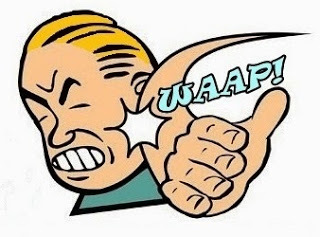 My husband and I were early in preparing to shelter in place. We expected not to go out for a month or more and had planned accordingly. We were forced out into the world due to an oversight. Delivery would take days. We decided only one of us should go.
My husband and I were early in preparing to shelter in place. We expected not to go out for a month or more and had planned accordingly. We were forced out into the world due to an oversight. Delivery would take days. We decided only one of us should go.
I raised my hand. If we had to go out for one thing, we'd replenish what we needed and I am the meal planner of the family. Besides, I wanted a bit of an adventure. I am lucky to live in a small town with a major grocery store. Shopping mid-week, I figured I'd have the place pretty much to myself.
We tripled checked the list the night before. We YouTubed and Googled best practices for staying virus free. Some of the steps were a bit over the top, but safety is safety, and knowing we were starting the clock again for any exposure, we were willing to take precautions to keep our peace of mind.
Planning made me feel like a special agent. Gloves. Mask. Dirty area. Decontamination process. My adventure was beginning!
The store created special early morning hours for seniors and I wondered how they would enforce that. It's been years since I had to skulk past a bouncer, but this time I wanted to be carded.
My first shock: At 6:00AM, the store lot was nearly full. It seemed like people had even parked their cars in a social distance way leaving a space between each.
My first disappointments: I was not carded and I could not bring in my reusable shopping bags.
A sign said to keep six floor tiles apart. Employees in gloves, some in masks, counted people in and out of the store. Red tape marked where folks should stand in line. One employee wiped down each cart.
By the time I passed half-full refrigerated cases, my sense of fun had begun to wilt. I was no longer shocked or disappointed. A prevailing feeling of numbness crept in as I walked inside a movie set of dystopian life.There was still plenty of food, but the choices had thinned. Many shelves were empty. I did not sense tension among shoppers as I had during an earlier shopping trip when news of the virus was just breaking. People were resolute. Everyone wore gloves. Those who wore masks or scarves seemed to make an extra effort to put a smile in their eyes. I know I did.
I took note of who was there. I felt a little better knowing I was most like the youngest. I checked my normal impatience at the door and shuffled at least six tiles behind everyone. A stooped rail of a man peered at his list, then up at a shelf, and back. Heavy scrawled letters on the wrinkled paper confused him. I had visions of his wife at home, taking care to write as clearly as she could, knowing the choices would be bewildering to him.
It took a minute, but he made his choice and moved on.
I almost reached for the sole remaining paper towel roll. Our supply would last if used judiciously, but having one more seemed like a good idea. A knotted hand reached out for it. I stepped back and continued checking off items on my list.
Every-other register was open and a line formed to retain social distance. Employees helped manage the cue and give instructions for checking out safely.
I followed the new rules and loaded up my car, switching out one pair of nitrile gloves for a clean pair.
Then I put my face in my hands and cried.
Big deal, right? Yeah. It was a much bigger deal than I expected it to be.
 My husband and I were early in preparing to shelter in place. We expected not to go out for a month or more and had planned accordingly. We were forced out into the world due to an oversight. Delivery would take days. We decided only one of us should go.
My husband and I were early in preparing to shelter in place. We expected not to go out for a month or more and had planned accordingly. We were forced out into the world due to an oversight. Delivery would take days. We decided only one of us should go. I raised my hand. If we had to go out for one thing, we'd replenish what we needed and I am the meal planner of the family. Besides, I wanted a bit of an adventure. I am lucky to live in a small town with a major grocery store. Shopping mid-week, I figured I'd have the place pretty much to myself.
We tripled checked the list the night before. We YouTubed and Googled best practices for staying virus free. Some of the steps were a bit over the top, but safety is safety, and knowing we were starting the clock again for any exposure, we were willing to take precautions to keep our peace of mind.
Planning made me feel like a special agent. Gloves. Mask. Dirty area. Decontamination process. My adventure was beginning!
The store created special early morning hours for seniors and I wondered how they would enforce that. It's been years since I had to skulk past a bouncer, but this time I wanted to be carded.
My first shock: At 6:00AM, the store lot was nearly full. It seemed like people had even parked their cars in a social distance way leaving a space between each.
My first disappointments: I was not carded and I could not bring in my reusable shopping bags.
A sign said to keep six floor tiles apart. Employees in gloves, some in masks, counted people in and out of the store. Red tape marked where folks should stand in line. One employee wiped down each cart.
By the time I passed half-full refrigerated cases, my sense of fun had begun to wilt. I was no longer shocked or disappointed. A prevailing feeling of numbness crept in as I walked inside a movie set of dystopian life.There was still plenty of food, but the choices had thinned. Many shelves were empty. I did not sense tension among shoppers as I had during an earlier shopping trip when news of the virus was just breaking. People were resolute. Everyone wore gloves. Those who wore masks or scarves seemed to make an extra effort to put a smile in their eyes. I know I did.
I took note of who was there. I felt a little better knowing I was most like the youngest. I checked my normal impatience at the door and shuffled at least six tiles behind everyone. A stooped rail of a man peered at his list, then up at a shelf, and back. Heavy scrawled letters on the wrinkled paper confused him. I had visions of his wife at home, taking care to write as clearly as she could, knowing the choices would be bewildering to him.
It took a minute, but he made his choice and moved on.
I almost reached for the sole remaining paper towel roll. Our supply would last if used judiciously, but having one more seemed like a good idea. A knotted hand reached out for it. I stepped back and continued checking off items on my list.
Every-other register was open and a line formed to retain social distance. Employees helped manage the cue and give instructions for checking out safely.
I followed the new rules and loaded up my car, switching out one pair of nitrile gloves for a clean pair.
Then I put my face in my hands and cried.
Published on April 02, 2020 09:47
March 29, 2020
I Am CO-LIVID
My plate was already full. I suspended posting here as I devoted my energies to organizations I adore and to writing. Something had to give, so my sporadic posts of random thoughts gave way.
Then COVID hit.
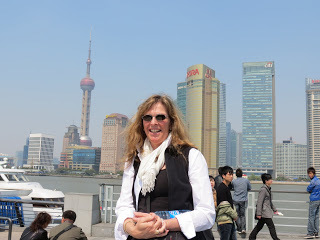 ShanghaiYou might think by my posting this now, that I'm only just tuning in. You're wrong. I was once a biopharmaceutical recruiter. My clients were spread across the U.S., but many were in China. My connections and travels there made me fascinated with that country. I wrote about talent trends for Bloomberg/Businessweek and Nature. I've continued to stay aware of news involving China, especially if it involved new therapies or illnesses.
ShanghaiYou might think by my posting this now, that I'm only just tuning in. You're wrong. I was once a biopharmaceutical recruiter. My clients were spread across the U.S., but many were in China. My connections and travels there made me fascinated with that country. I wrote about talent trends for Bloomberg/Businessweek and Nature. I've continued to stay aware of news involving China, especially if it involved new therapies or illnesses.
In December, I heard mentions of an outbreak. I didn't pay attention to it as our news often mentions exotic illnesses in foreign countries. I felt that China's experience with SARS would make them adept at a response. No worries.
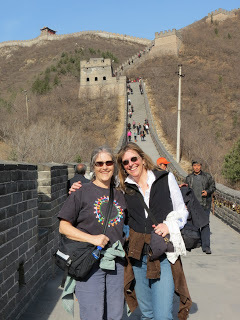 The Great WallIn January, I was stunned to hear a city of 11 million people was shut down. I knew then that we were in for trouble. I waited to see what the U.S. response would be. If a soccer-mom-turned-suspense-author-living-in-a-small-town knew enough that early and definitive actions were needed, I assumed our leaders knew that as well. My husband and I began to share our concerns. Our periscopes went up.
The Great WallIn January, I was stunned to hear a city of 11 million people was shut down. I knew then that we were in for trouble. I waited to see what the U.S. response would be. If a soccer-mom-turned-suspense-author-living-in-a-small-town knew enough that early and definitive actions were needed, I assumed our leaders knew that as well. My husband and I began to share our concerns. Our periscopes went up.
In February, around Valentine's Day, my husband shared a website created by a friend of his. The website was not an extremist prepper site. It was written in my language. Measured. Factual. Serious. Balanced. We spent an hour or more reviewing boots-on-the-ground videos from Wuhan. The videos have since disappeared, but they were enough to have us begin gathering supplies the next day.
Bread and chicken were already sold out. I watched a mom, toddler and kids in tow, consider a twenty pound bag of rice then hoist a fifty pound bag into her cart. I marveled at the signs that admonished us to take only one bag per customer. A man, wearing nitrile gloves, joked about the coming Armageddon.
Still, I thought if regular folks were taking action, surely our country was far ahead of us. Our country shows signs of waking up now. It is the end of March. Our illness and death numbers today will look quaint in merely a week's time.
I cannot express how angry I am. I am heartbroken. I am frustrated. I am incredulous. I am livid.
Make that, I am CO-liVID.
There are enough voices of disgust in our current leadership and I don't like to add to the noise, regardless of how deserving a good rant may be. During the same period of time I was taking action, leaders in our country did not. This article from the U.K. points out the folly of their stillness.
I have family who have contracted and recovered from COVID-19. Their tales are sobering.
Today, a friend in New York posted the deaths of three of his friends to the virus.
Three. In one day.
The hollowness I feel about the wave of preventable deaths is at risk of being filled with ugly emotions. I do not want to blame or denigrate those who trusted and followed leadership when facts and science would have led them elsewhere. Banning together during a crisis will make us stronger and it is the stuff of what makes America great.
The buck does stop somewhere, even if the occupant refuses responsibility.
My author events have been canceled or gone digital. I'm helping our elderly moms understand the wonders of video chatting. I am checking in on friends and family and offering what little help I can, even if it's just a shared laugh.
This post helped me vent my rage and provided a salve to feeling impotent. Maybe virtually banning together might help you feel less isolated. I've started a hashtag on Twitter. #COliVID. Vent. Consider it your primal scream.
And, please, stay safe. I care about you.
Then COVID hit.
 ShanghaiYou might think by my posting this now, that I'm only just tuning in. You're wrong. I was once a biopharmaceutical recruiter. My clients were spread across the U.S., but many were in China. My connections and travels there made me fascinated with that country. I wrote about talent trends for Bloomberg/Businessweek and Nature. I've continued to stay aware of news involving China, especially if it involved new therapies or illnesses.
ShanghaiYou might think by my posting this now, that I'm only just tuning in. You're wrong. I was once a biopharmaceutical recruiter. My clients were spread across the U.S., but many were in China. My connections and travels there made me fascinated with that country. I wrote about talent trends for Bloomberg/Businessweek and Nature. I've continued to stay aware of news involving China, especially if it involved new therapies or illnesses.In December, I heard mentions of an outbreak. I didn't pay attention to it as our news often mentions exotic illnesses in foreign countries. I felt that China's experience with SARS would make them adept at a response. No worries.
 The Great WallIn January, I was stunned to hear a city of 11 million people was shut down. I knew then that we were in for trouble. I waited to see what the U.S. response would be. If a soccer-mom-turned-suspense-author-living-in-a-small-town knew enough that early and definitive actions were needed, I assumed our leaders knew that as well. My husband and I began to share our concerns. Our periscopes went up.
The Great WallIn January, I was stunned to hear a city of 11 million people was shut down. I knew then that we were in for trouble. I waited to see what the U.S. response would be. If a soccer-mom-turned-suspense-author-living-in-a-small-town knew enough that early and definitive actions were needed, I assumed our leaders knew that as well. My husband and I began to share our concerns. Our periscopes went up.In February, around Valentine's Day, my husband shared a website created by a friend of his. The website was not an extremist prepper site. It was written in my language. Measured. Factual. Serious. Balanced. We spent an hour or more reviewing boots-on-the-ground videos from Wuhan. The videos have since disappeared, but they were enough to have us begin gathering supplies the next day.
Bread and chicken were already sold out. I watched a mom, toddler and kids in tow, consider a twenty pound bag of rice then hoist a fifty pound bag into her cart. I marveled at the signs that admonished us to take only one bag per customer. A man, wearing nitrile gloves, joked about the coming Armageddon.
Still, I thought if regular folks were taking action, surely our country was far ahead of us. Our country shows signs of waking up now. It is the end of March. Our illness and death numbers today will look quaint in merely a week's time.
I cannot express how angry I am. I am heartbroken. I am frustrated. I am incredulous. I am livid.
Make that, I am CO-liVID.
There are enough voices of disgust in our current leadership and I don't like to add to the noise, regardless of how deserving a good rant may be. During the same period of time I was taking action, leaders in our country did not. This article from the U.K. points out the folly of their stillness.
I have family who have contracted and recovered from COVID-19. Their tales are sobering.
Today, a friend in New York posted the deaths of three of his friends to the virus.
Three. In one day.
The hollowness I feel about the wave of preventable deaths is at risk of being filled with ugly emotions. I do not want to blame or denigrate those who trusted and followed leadership when facts and science would have led them elsewhere. Banning together during a crisis will make us stronger and it is the stuff of what makes America great.
The buck does stop somewhere, even if the occupant refuses responsibility.
My author events have been canceled or gone digital. I'm helping our elderly moms understand the wonders of video chatting. I am checking in on friends and family and offering what little help I can, even if it's just a shared laugh.
This post helped me vent my rage and provided a salve to feeling impotent. Maybe virtually banning together might help you feel less isolated. I've started a hashtag on Twitter. #COliVID. Vent. Consider it your primal scream.
And, please, stay safe. I care about you.
Published on March 29, 2020 10:24
October 25, 2019
One Page Horror: When the Earth Swallows the Good
A recent writers' gathering asked us to create a one page horror story. Horror means different things to different people. Ghouls and ghosts? Paranormal activity? Aliens? Sure, why not! For me, true horror was something completely different. Read on. -cjh
=============
When the Earth Swallows the Goodby Connie Johnson Hambley
She gripped the hand of her five-year-old, hugged her swaddled baby to her chest, and hoped she didn’t drop her pack as the crowd shoved her forward.“Mom! Are we there yet?”“Almost, Sweet Cheeks. Almost.”She saw her daughter’s lower lip quiver, trying to be brave. “You said that already.”“I know, Honey, I know. Just a little bit more.”They weren’t going back. Ever. There was nothing to go back to. The earth had swallowed the good and spit out the bad. The bad pushed them forward more than the teeming bodies.“I’m tired.”“Me too, but you’re being such a good girl helping mommy carry your bear and your pack!” She gave a silent prayer of thanks her voice was strong even as she wasn’t. She carried their food, blankets, water. All the heavy things needed for life. Her daughter carried her bear and all the light things needed for life.The crowd surged. A mother called for her child.She could see over their heads. The checkpoint, a line of shining wire separating them from an expanse of green that held promises for no one but hope for all, was only a little more. Just a little more. Families hugged each other and wept on the other side. Families clung to each other and wept on this side.“Present papers! No exceptions!” She raced through her mental checklist of their frantic packing this morning. It was dark, the bad was closer than before, people panicked and grabbed what they could. They left what they could.Another wave of bodies almost trampled them, wrenching them apart. She rooted her feet to the ground and plunged her arm down. Searching.Tiny fingers gripped her hand. The cold panic receded even as she saw the black uniforms and the huge rifles of the guards loom closer. White buses, belching black exhaust, idled on this side, waited for their cargo with open maws. The wind carried the stench of diesel and the cries of the passengers to her. Photo credit: Gabriela SotoThe drama unfolded again and again. Separation. She was lucky. They were going to be lucky. Everything was in order. She had checked and rechecked. They were going to be fine.At last. “Papers?”She reached into her pack, surprised to find one long yellow document. Her picture. Her baby’s certificate. “Papers?” This time, to her daughter.She watched the lower lip quiver. “Mommy. I lost my pack.”
Photo credit: Gabriela SotoThe drama unfolded again and again. Separation. She was lucky. They were going to be lucky. Everything was in order. She had checked and rechecked. They were going to be fine.At last. “Papers?”She reached into her pack, surprised to find one long yellow document. Her picture. Her baby’s certificate. “Papers?” This time, to her daughter.She watched the lower lip quiver. “Mommy. I lost my pack.”
=============
When the Earth Swallows the Goodby Connie Johnson Hambley
She gripped the hand of her five-year-old, hugged her swaddled baby to her chest, and hoped she didn’t drop her pack as the crowd shoved her forward.“Mom! Are we there yet?”“Almost, Sweet Cheeks. Almost.”She saw her daughter’s lower lip quiver, trying to be brave. “You said that already.”“I know, Honey, I know. Just a little bit more.”They weren’t going back. Ever. There was nothing to go back to. The earth had swallowed the good and spit out the bad. The bad pushed them forward more than the teeming bodies.“I’m tired.”“Me too, but you’re being such a good girl helping mommy carry your bear and your pack!” She gave a silent prayer of thanks her voice was strong even as she wasn’t. She carried their food, blankets, water. All the heavy things needed for life. Her daughter carried her bear and all the light things needed for life.The crowd surged. A mother called for her child.She could see over their heads. The checkpoint, a line of shining wire separating them from an expanse of green that held promises for no one but hope for all, was only a little more. Just a little more. Families hugged each other and wept on the other side. Families clung to each other and wept on this side.“Present papers! No exceptions!” She raced through her mental checklist of their frantic packing this morning. It was dark, the bad was closer than before, people panicked and grabbed what they could. They left what they could.Another wave of bodies almost trampled them, wrenching them apart. She rooted her feet to the ground and plunged her arm down. Searching.Tiny fingers gripped her hand. The cold panic receded even as she saw the black uniforms and the huge rifles of the guards loom closer. White buses, belching black exhaust, idled on this side, waited for their cargo with open maws. The wind carried the stench of diesel and the cries of the passengers to her.
 Photo credit: Gabriela SotoThe drama unfolded again and again. Separation. She was lucky. They were going to be lucky. Everything was in order. She had checked and rechecked. They were going to be fine.At last. “Papers?”She reached into her pack, surprised to find one long yellow document. Her picture. Her baby’s certificate. “Papers?” This time, to her daughter.She watched the lower lip quiver. “Mommy. I lost my pack.”
Photo credit: Gabriela SotoThe drama unfolded again and again. Separation. She was lucky. They were going to be lucky. Everything was in order. She had checked and rechecked. They were going to be fine.At last. “Papers?”She reached into her pack, surprised to find one long yellow document. Her picture. Her baby’s certificate. “Papers?” This time, to her daughter.She watched the lower lip quiver. “Mommy. I lost my pack.”
Published on October 25, 2019 10:04
October 20, 2019
Windrush Gala Speech for Kathy
Last night I had the incredible honor of being the guest speaker at the Windrush Farm Gala. I've written and spoken about Kathy and my experience as a volunteer, but I never dreamed I'd be asked to speak in front of a crowd of hundreds. I was glad I could hide my shaking knees behind the podium. The standing ovation was a shock, but what really tugged at me was receiving one of Kathy's Special Olympics gold metals from her family afterward. -cjh
============
Many of us are here tonight because we’ve seen the transformation a loved one has enjoyed as a result of their Windrush Farm experience. We’ve heard stories of first words spoken, emotional wounds fading, and physical sufferings lifting. The Windrush experience is often the catalyst for remarkable growth–physically, socially and emotionally– in the client rider.
In ways big and small, Windrush makes an impact beyond its split rail fences and pastures.
I think of the Windrush experience as a pebble thrown into the middle of a pond. Its impact ripples outward and touches more than just the rider astride a horse. Of course, the first ripple of Windrush’s effect is felt by the families. They can see the changes in mood or movement in their loved one up close.
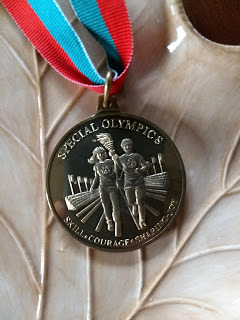
But, the ripples keep expanding.
I started volunteering at Windrush because I’m a horse lover without a horse. I had six horses growing up and missed the sweet tangy smell of a stable and the oily grit of horse under my nails. A friend told me about an incredible, positive place that welcomes volunteers.
Enter Windrush into my life. Or should I say, enter Kathy.
I met Kathy Blanton five years ago. She had been riding at Windrush for close to ten years and I was a new volunteer horse handler. I knew horses. I knew nothing about Kathy. We were paired with an independent-minded pony named Bearito. I knew what to expect with horses and I could handle Bearito’s moods. I didn’t know what to expect with Kathy. She greeted me that first day with a nod and a look that told me she was sizing me up. Kathy no longer needed sidewalkers and could balance in the saddle independently. We got to work. The hour lesson was just Kathy and me, each learning about the other.
I was surprised and pleased when, a few weeks later, Kathy asked to work with me exclusively each week. I didn’t know then that a magic spell had been cast. Something profound changed in both of our lives.
But mostly mine.
I had never worked with anyone who had special needs and didn’t know what to expect. I was there for the horse grit, right? Each lesson–when she’d walk into the arena and greet me with her arms outstretched and that huge thousand-watt smile–we would each learn a little more.
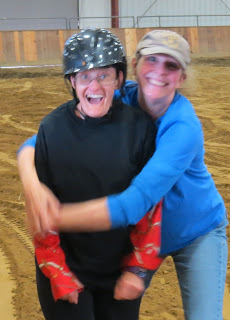 Kathy was a tease. She’d pull my ponytail or take my hat. We’d laugh at our successes and laugh even more at our failures. As a horse handler, my job was to make sure to keep the rider safe if the horse did anything unexpected, so I was never out of reach. Kathy loved to trot, but I think she loved making me sprint around the arena beside her even more, laughing as I caught my breath. Steering the horse to nudge me into a freshly deposited pile of poop was a special delight for her.
Kathy was a tease. She’d pull my ponytail or take my hat. We’d laugh at our successes and laugh even more at our failures. As a horse handler, my job was to make sure to keep the rider safe if the horse did anything unexpected, so I was never out of reach. Kathy loved to trot, but I think she loved making me sprint around the arena beside her even more, laughing as I caught my breath. Steering the horse to nudge me into a freshly deposited pile of poop was a special delight for her.I developed a deep respect for Kathy and saw her through the prism of what she could do rather than what she could not. She wasn’t a diagnosis. She was a person.She learned to feel like an equestrian, complete with knowing that the road is filled with failures, but it’s the failures that help us forward.
In that special alchemy that happens inside therapeutic riding, she gave each lesson the full extent of her abilities, pushing up to and beyond her limitations. How many of us approach our challenges this way? She learned to do a posting trot, unclipped, independent. Free and able.
She was capable of so much and we kept trying more. Early on, she began helping me by leading the horse back up to the barn, taking the bridle and saddle into the tack room, and brushing out saddle marks. Then she’d help me lead the horse into a paddock or stall. After, we would walk arm-in-arm back down the hill. Sometimes we’d have lunch together in the gazebo. Sometimes she’d show me something special in her life – pictures of swimming lessons or family gatherings. I suspected these brief moments were a ploy for us to spend more time together. I didn’t mind.
In the outer ripples of Kathy’s Windrush experience, I learned about the power of the human spirit and never to take for granted the gifts that each of us has when we allow ourselves to give. . . or to receive. In that gazebo, I received the first short stories Kathy had ever written and published them on my blog. She was thrilled when I told her I namedcharacters in my last novel after her—a horse handler named Kathy, a priest named Father Blanton. Windrush Farm and Mandy Hogan got a nod, too.
Kathy wanted to do more. She wanted to create and write more.
Her experience continues to wash over and through me.
 It’s with some irony that Kathy’s challenges were a result of surviving Eastern Equine Encephalitis as a young child. That often fatal virus – in the news so much now – may have taken a physical and intellectual toll on Kathy, but it did not dim her spirit and she lived for more than fifty years as a vibrant, funny and loving woman. It is with profound grief that Triple E finally succeeded in claiming Kathy’s life by being a significant factor in an incomprehensible series of events this past winter.
It’s with some irony that Kathy’s challenges were a result of surviving Eastern Equine Encephalitis as a young child. That often fatal virus – in the news so much now – may have taken a physical and intellectual toll on Kathy, but it did not dim her spirit and she lived for more than fifty years as a vibrant, funny and loving woman. It is with profound grief that Triple E finally succeeded in claiming Kathy’s life by being a significant factor in an incomprehensible series of events this past winter.Kathy changed me and we never would have known one another if it were not for Windrush Farm.
Her family is doing something remarkable in her memory and Kathy’s experience continues to ripple outward, impacting others in ways large and small.
Thank you, Blanton family and Windrush, for being the pebble and the pond, and for letting me be just a small part of this story.
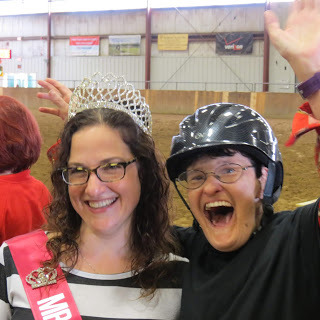
Published on October 20, 2019 08:35
September 5, 2019
BOOK LAUNCH: V.S. Kemanis #MeToo Short Stories
Women’s Voices: Me Too Short Stories with V.S. Kemanisby V.S. Kemanis
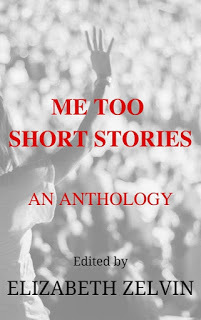 If you’re in the New York City area, come to the Me Too launch party at The Mysterious Bookshop, 58 Warren Street, NYC, 6:30 – 8:30 p.m. on Tuesday, September 24, 2019. Refreshments will be good, and readings will be brief!
If you’re in the New York City area, come to the Me Too launch party at The Mysterious Bookshop, 58 Warren Street, NYC, 6:30 – 8:30 p.m. on Tuesday, September 24, 2019. Refreshments will be good, and readings will be brief!It’s been almost two years since the #MeToo movement dawned in the aftermath of the story about movie mogul Harvey Weinstein’s long history of harassing and abusing women. The phrase “Me Too” was actually coined years earlier by activist Tarana Burke. Since its dawning, the movement has only picked up speed, giving women the courage to come forward with their personal stories, to find strength in their shared experiences, to reflect, act, and heal.
What the movement hasn’t seen until now is an anthology of fiction on the theme of crimes against women, retribution and healing. Me Too ShortStories: An Anthology , released on September 3 by Level Best Books, is the unique, innovative brainchild of author/editor Elizabeth Zelvin.
Fiction, as all art, engages the intellect and emotional core while it entertains and enlightens. We’ve heard it said, brilliantly, many ways: “Fiction reveals truth that reality obscures” (Jessamyn West). “There is no doubt fiction makes a better job of the truth” (Doris May Lessing). “Fiction is the lie through which we tell the truth” (Albert Camus). The fictional tales in Me Too Short Stories, far from being autobiographical, nevertheless tap the reality and truth that all women share. Besides the enjoyment that any good tale brings, each story in this collection is a launching point for reflection and discussion about personal experience.
From the blurb:
“What do women want? A voice. To be heard. Respect. To be believed. Justice. To be both safe and free. The women in these stories have daughters, sisters, friends. The minister worries about her parishioners. The banshee worries about the Hippocratic Oath. The microbiologist worries about her obligation to the dead. They will use any means to protect themselves and those they love: a childish jingle, a skillet full of cornbread, a candle, their own quick wits. We cannot ignore their voices.”
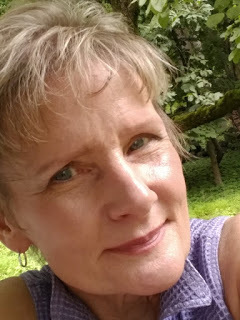 Author V.S. KemanisThe anthology includes fifteen tales that fall within the many subgenres of crime fiction, from psychological suspense to classic mystery to cozy. I am proud to have a story in this wonderful collection. To give you an idea, here are no-spoiler teasers of the stories, in the order in which they appear in the anthology:
Author V.S. KemanisThe anthology includes fifteen tales that fall within the many subgenres of crime fiction, from psychological suspense to classic mystery to cozy. I am proud to have a story in this wonderful collection. To give you an idea, here are no-spoiler teasers of the stories, in the order in which they appear in the anthology:“No Outlet” by V.S. Kemanis
When a young single mother moves into the neighborhood, Arlene is called to action on her behalf by the rekindled memory of her secret source of guilt.
“Never Again” by Elizabeth ZelvinFourteen-year-old Valerie has been living in hell since she was four. Frances, hiding shame behind obesity, is trapped in an abusive marriage. Valerie and Frances will never meet, but they’re on a collision course.
“Pentecost” by Eve FisherIt’s hard to be the first female pastor in a small town, but even harder when you know the dark truth no one else wants to admit.
“The Call Is Yours” by Rona BellA young woman who wants to be noticed learns that admiration is fleeting, but shame will last until the world changes.
“The Final Recall” by Diana CattIn the near future, science can retrieve memories from the brains of the dead. Sara finds her job a waste of her hard-earned doctorate—until she realizes that she and a nameless cadaver share a memory that could be fatal.
“A Measured Death” by Julia PomeroyMary’s life has been eroded in service to the massive talent of her pianist husband. Will she ever find a way out?
“Miss Evelyn Nesbit Presents” by Ana BrazilIn 1914 New York City, real-life Evelyn Nesbit—celebrated beauty and well-publicized rape victim—makes a desperate bid to reframe her past and rewrite her future.
“Stepping on Snakes” by Madeline McEwenNaive or precocious? One girl’s decision. Set in the vanished world of South Africa in the early 1960s.
“Women Who Love Dogs” by Dayle A. DermatisMerlin needs exercise, and overworked Vanessa and her wheelchair-bound sister need cash. Rent-A-Pup seems like the perfect solution. But how do you really know who’s walking your dog?
“Jewel's Hell” by Lynn HesseJewel’s “normal” is teenage prostitution. But in a dysfunctional family, when one person does something different, everything starts to change.
“Banshee Scream” by Gin GannonDoes the banshee scream to warn the victim or the killer?
“A Dog's Life” by Ann RawsonLiverpool 1980. After moving off campus to escape a stalker, might Liz find herself in a more dangerous place?
“Subterfuge” by Julia BuckleyFor young women in Sophia’s small town, all paths lead only to dead ends. Is there anything Sophia won’t do to get away?
“The Taste of Collards” by C.C. GuthrieWith single-minded focus to protect her children, Lizbeth follows the age-old adage, necessity is the mother of invention.
“Chrissie”Me Too Short Stories is available now from Level BestBooks, and from Amazon in e-book and paperback editions.
Published on September 05, 2019 21:00

